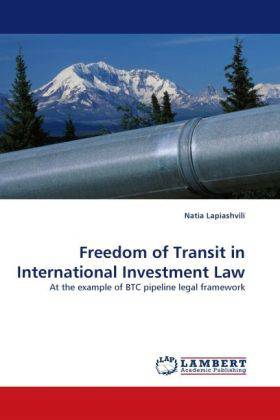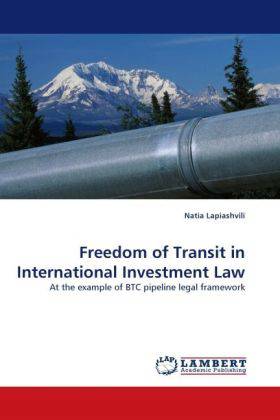
- Afhalen na 1 uur in een winkel met voorraad
- Gratis thuislevering in België vanaf € 30
- Ruim aanbod met 7 miljoen producten
- Afhalen na 1 uur in een winkel met voorraad
- Gratis thuislevering in België vanaf € 30
- Ruim aanbod met 7 miljoen producten
Zoeken
Freedom of Transit in International Investment Law
At the example of BTC pipeline legal framework
Natia Lapiashvili
Paperback | Engels
€ 60,95
+ 121 punten
Omschrijving
The monograph focuses on the energy transit law while considering the particular example of Baku-Tbilisi-Ceyhan Pipeline Project. This is a crude oil pipeline, running through the territories of Azerbaijan, Georgia and Turkey. Firstly research examines the relevant provisions on energy transit in different international treaties, such as 1921 Barcelona Convention, GATT 1994, Energy Charter Treaty (ECT) and ECT Protocol on Transit. It stresses on the provided definitions and observes the differences. The legal framework of the project includes international agreements particularly devoted to this pipeline. Through the analysis of the mentioned legal framework, the paper identifies the essential problems that may arise in the application of those instruments, namely possible conflicts with public international and domestic law. The work further applies the defenses traditionally used in the investment disputes to the given situation. While the paper generally supports the latest developments of international investment law, it questions the compatibility of certain aspects of the framework agreements with the traditional notions of public international law.
Specificaties
Betrokkenen
- Auteur(s):
- Uitgeverij:
Inhoud
- Aantal bladzijden:
- 88
- Taal:
- Engels
Eigenschappen
- Productcode (EAN):
- 9783838355030
- Verschijningsdatum:
- 6/07/2010
- Uitvoering:
- Paperback
- Afmetingen:
- 152 mm x 229 mm
- Gewicht:
- 136 g

Alleen bij Standaard Boekhandel
+ 121 punten op je klantenkaart van Standaard Boekhandel
Beoordelingen
We publiceren alleen reviews die voldoen aan de voorwaarden voor reviews. Bekijk onze voorwaarden voor reviews.







